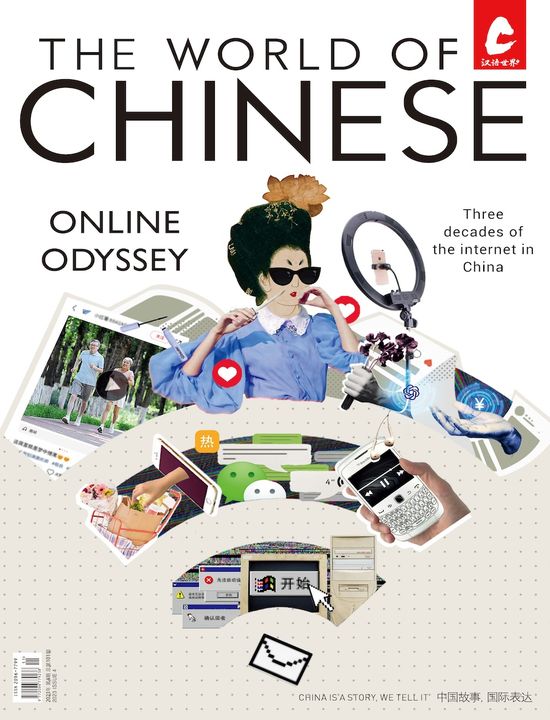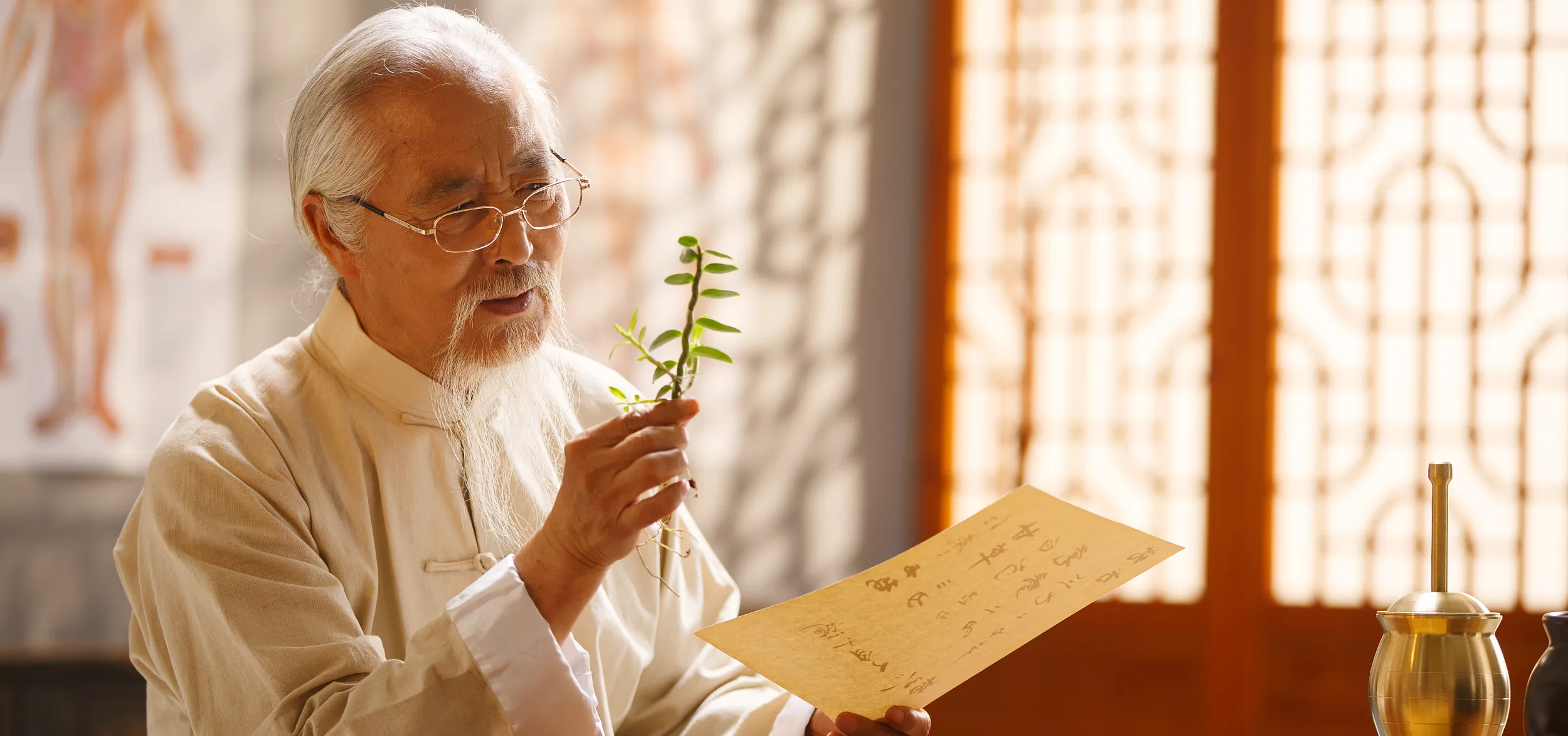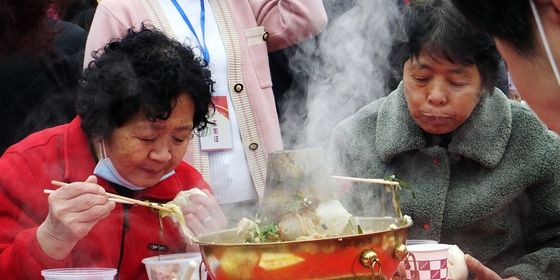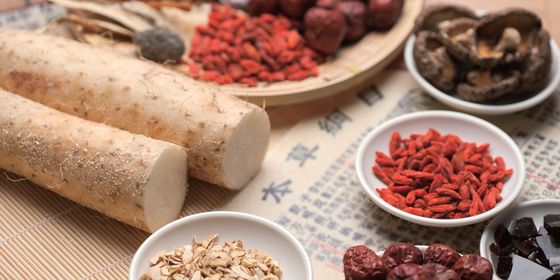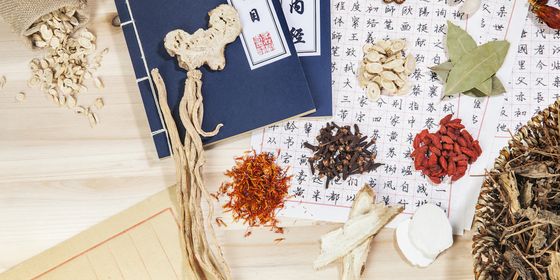Fantastic healers of history and legend
March 17, China’s National Medicine Day, was a festival that emerged in 1920s, aiming to preserve traditional Chinese medical practices while the government was trying to modernize other aspects of society. Though it used to be widely celebrated by practitioners, disputes and controversies have diminished the popularity of TCM among young people today.
In ancient history, though, many TCM physicians enjoyed high respect, and those with superb medical skills and respectable virtue earned the honorable title “Divine Doctors (神医).” They were even said to have real divine powers, as in many of these examples below:
Bian Que’s X-ray eyes
Bian Que (扁鹊) was the earliest known Chinese physician. His real name is said to be in Yueren, but the people nicknamed him Bian Que after the mythical doctor Bian Que from the time of the Yellow Emperor. According to records, the second Bian Que was a doctor of many specialties, conforming to the local needs wherever he traveled.
A famous story states that Bian Que once visited the State of Cai and diagnosed a disease for its king. But the king did not feel any symptoms and thought Bian Que was a charlatan, and so he died. This story gave rise to the chengyu 讳疾忌医, “conceal one’s ailment and refuse to consult the doctor,” which describes someone who is reluctant to admit their own errors and shortcomings.
A more interesting tale concerns how Bian Que acquired his skills. According to The Records of the Grand Historian, before Bian Que became a doctor, he was an attendant at an inn. For almost 10 years, there was one elderly guest who regularly stayed at the inn, and Bian Que treated him well. One day, the guest gave Bian Que a packet of medicine said, “This is my a secret medicine. Now that I am old, I want to give it to you. Don’t tell others.” Bian Que agreed, and boiled the medicine and took it according to the old man’s instructions. Afterwards, Bian Que gained the ability to see inside the human body, so he became an expert in diagnosis, pulse-taking, and acupuncture.
However, his extraordinary ability incurred jealousy. It was said when Bian Que visited the state of Qin, he was murdered by an assassin sent by Qin’s imperial physician Li Xi.
Heroic Hua Tuo
Hua Tuo (华佗) was probably the most well-know divine doctor in China. Even today, people praise great doctors as “the reincarnation of Hua Tuo (华佗再世).” Living in the late Eastern Han dynasty, Hua Tuo was the first known person in China to use anesthesia during surgery (a general anesthetic combining wine with a herbal concoction called mafeisan, or “cannabis boil powder”), according to The Records of the Three Kingdoms and The Book of the Later Han.
Hua Tuo is often associated with heroes from the Three Kingdom era, after he became a character in Luo Cheng’en’s classic novel The Romance of the Three Kingdoms. One story in the novel states that when Guan Yu, the famous general from the State of Shu, was wounded by a poisoned arrow, Hua Tuo treated him by cutting open his flesh and scraping the bone with scalpel. Though the story was meant to show Guan’s willpower and tolerance to pain, Hua Tuo’s remarkable healing skills were also remembered (in actual history, the doctor who treated Guan was a military surgeon whose name wasn’t recorded).
Another famous patient of Hua Tuo is Cao Cao, a warlord who rose to power towards the end of the Han dynasty and laid the foundation for the State of Wei in the Three Kingdoms period. It’s believed that Cao eventually killed Hua Tuo. There two versions of how this happened. One story tells that Cao suffered from serious headaches, and Hua Tuo had treated him with acupuncture therapy. Cao wanted to keep Hua Tuo close to him. Hua lied that he received a letter from his wife and had to go back to his hometown. Then, he made excuse that his wife was ill and refused to come back. Cao discovered the deception and ordered Hua Tuo’s execution.
The second version of the tale is that when Hua Tuo was invited to treat Cao, he told Cao that he must cut open his skull and operate. Cao was very angry, thinking Hua was trying to murder him, so he ordered Hua Tuo’s execution. Some stories add an ironic ending to the story—Cao himself died of the irremediable headache after Hua Tuo died. 讳疾忌医, indeed.
Sun Simiao’s longevity
Sun Simiao (孙思邈) was a famous TCM doctor of the Sui and Tang dynasties. Later people called him the King of Medicine (药王) for his significant contributions to Chinese medicine.
It is said that Sun was a sickly child, so he took up medicine as an adult to strengthen his own health. Because he was talented and hardworking, Sun began to practice medicine at a very young age. He traveled great distances to learn useful prescriptions, and gained such a great reputation that he got offers from three different emperors to become a governmental official. Sun refused all of them, and chose to live in in seclusion on Mount Wutai, where he followed Daoist principles and integrated them with Buddhism and Confucianism.
Perhaps such a lifestyle contributed to his health: According to legends, Sun lived to be 142 years old. After his death, the cave where he used to live became a popular destination for pilgrims, and locals nicknamed Mount Wutai “The Medicine King’s Mountain” in Sun’s memory.
Li Shizhen bringing the dead back to life
As an ancient Chinese saying goes, “If I can’t become a good premier, I would like to be a great doctor (不为良相,愿为良医).” This fits Li Shizhen (李时珍) of the Ming dynasty well. At the age of 23, Li failed the the imperial exam for a third time and decided to devote his life to medicine. He spent 27 years walking around China studying different kinds of herbs and wrote the Compendium of Materia Medica (《本草纲目》), which features more than 1,800 Chinese medicines, 1,100 illustrations, and 11,000 prescriptions.
Another ancient saying, describing a doctor’s excellent medical skills, is 起死人,肉白骨 (“Revive the dead, and make flesh come out from bones”). In one legend, Li was walking on the street one day when he saw a group of people carrying a coffin. Li noticed that there was blood coming out of the coffin, and the corpse was pretty fresh, so he believed the person inside was not “completely” dead. Li persuaded the pallbearers to open the coffin and found that the body was of a pregnant woman. He massaged her and inserted a needle near her heart. Then, miraculously, the woman woke up, and gave birth to a son not long after.
Of course, she could have just been in coma, but the people at the time were deeply impressed by an incident that really showed a divine doctor’s skill.
